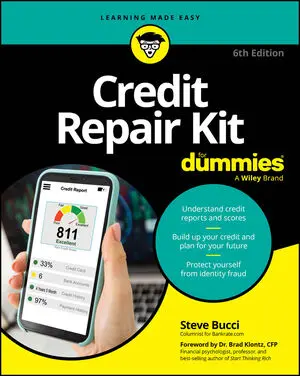If you’ve lost a spouse or partner, you’re already going through one of life’s most emotionally draining experiences. Your credit is probably the last thing on your mind. Unfortunately, in the midst of the often debilitating experience of losing a loved one, numerous financial matters surface, including credit and debt issues.
For one thing, thieves may use the deceased’s Social Security number and identity to open fraudulent credit accounts. Promptly sending a copy of the death certificate to the credit bureaus can help deter this crime:
Equifax, P.O. Box 105069, Atlanta, GA 30348
Experian, P.O. Box 9701, Allen, TX 75013
TransUnion, P.O. Box 6790, Fullerton, CA 92634
Stabilizing your credit in the event of a death can be difficult, especially if your spouse held all or most of the credit in his or her name. A creditor wants a copy of the death certificate and typically asks the estate to pay the bill. As a rule, you aren’t responsible for credit held in the deceased’s name alone unless the two of you lived in a community-property state.
In community-property states — Arizona, California, Idaho, Louisiana, Nevada, New Mexico, Texas, Washington, and Wisconsin — credit accounts opened during a marriage are considered joint accounts. That means you’re responsible for any debt your spouse incurred during the marriage. This may also be true in Alaska if you opted for community-property status when you moved there. Although Puerto Rico is an American territory and not a state, it has community-property laws, too.
What happens to joint credit when you’re single again
By law, a creditor can’t automatically close a joint account or change the terms because of the death of one spouse. Generally, the creditor asks the surviving spouse to fill out a new credit application in your own name. If your creditor doesn’t approach you with this option, close the joint account and open a new individual account in your name alone.
You don’t have to deal with this issue the day after your spouse’s death, but sooner is better than later, because a major change to your account has occurred.
Know exactly what your liability is
If you’re a joint account holder on a credit card, or if you live in one of the community-property states noted earlier, you may owe the debts of the deceased. In a community-property state, as long as the debt was incurred during the marriage, you are liable, even if you received no benefit from it or didn’t even know about it.
In non-community-property states, credit card debts and other debts that are solely in the name of the deceased aren’t passed on to surviving spouses or children. However, notifying creditors is still a good idea, even if you aren’t liable. They generally request that a certified copy of the death certificate be forwarded to them to close the account.
If the estate has assets, creditors may try to collect any balance due from the estate’s executor. If the estate doesn’t have enough cash and has few assets that can be sold, the issue generally ends there.
Some people feel that they should pay their deceased spouse’s debts, whether out of a sense of obligation or honor or just to set the record straight. Paying the debt of your deceased spouse isn’t necessary unless you’re required to do so by law.
Creditors understand risk very well and factor it into their fees and interest rates. In that regard, they’ve already been paid. If a creditor tries to pressure you into paying a debt that you aren’t obligated to pay, tell the creditor to take a hike.
Building your credit record on your own
If your spouse or partner has died and you shared financial matters, you need to reestablish yourself as an individual. Your first task is to come up with a spending plan that covers your expenses as a single person. This plan helps you understand how your financial situation has changed, for better or worse. When setting goals, stick to short- and intermediate-term goals until your life has settled down.
When you know where you stand financially, you can begin deciding how you want to use credit. Because your credit score determines what you pay for credit and under what terms it may be available, you should get your FICO score, along with copies of your credit reports. The better your score, the less you have to pay to borrow or use credit.
Don’t close old accounts with positive credit histories unless you have to. The length of time an account is open counts in your favor. Having a variety of accounts also helps your score. If you have a mortgage or a car payment and you can afford to pay off, you mught consider keeping it open for a short while to keep new positive information flowing into your credit file.






